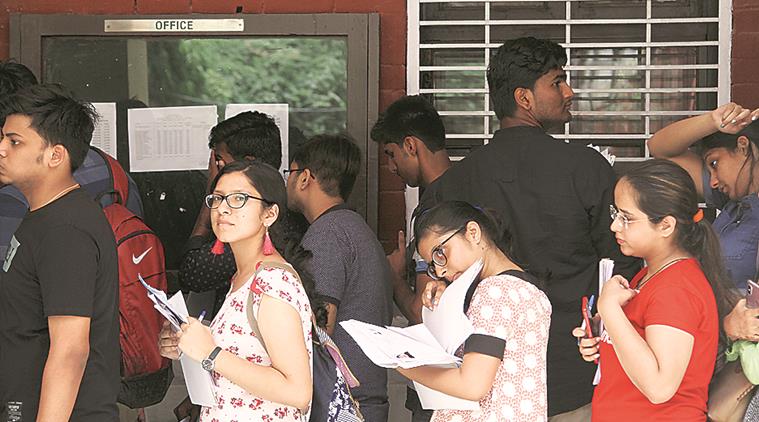
A meeting between the Delhi University Teachers Association (DUTA) and Under-Graduate Curriculum Revision Committee -2019 (UGCRC) held on Tuesday has bought mixed results. While some of the concerns of the teachers’ association including the ‘best teacher’ have been addressed but there was no consensus around the Learning Outcome-based Framework (LOCF) or time-frame of implementation of the new syllabus.
While the revision committee said “all statutory procedures for curriculum revision will be adhered to as already stated in the curriculum revision schedule”, DUTA believes that around three-months time could be a ‘rush’. Talking to indianexpress.com, DUTA president, Rajib Ray said, “While some of our concerns were addressed and we did come to conclusions on many issues during the meeting. Our biggest concern is regarding the framework which remains unaddressed.”
He added that with the new framework guided by the UGC, “The autonomy of the varsity will be endangered as it gives more power to the UGC than the teachers.”
Unlike the last curriculum revision — the introduction of the Choice-Based Credit System in 2015 — the plan is for revised courses to be implemented not just in DU’s regular colleges, but also in the Non-Collegiate Women’s Education Board and School of Open Learning.
According to the UGC, the LOCF approach to curriculum planning provides higher education institutes a point of reference for designing teaching-learning strategies and assessing learning levels. While course and programme learning outcomes have been understood to differ for different programmes, the latter is seen to include “subject-specific skills and generic skills, including transferable global skills and competencies”.
Read| DU syllabus revision, why is everyone not on board?
Since the recommendations are based on regulations framed by UGC and other authorities, the committee reportedly said that making changes in the framework is not under its purview. DUTA has decided to approach the HRD Ministry and UGC itself. While the official statement based on feedback from teachers’ will be released soon by the association.
Among the issues where the two agreed, during the recent meeting included, adding students in the revision process and of circulating the curriculum, at later stages, for wider feedback and suggestions. Regarding the concern related to defining ‘best teachers’, it was clarified that no such selection will be made. Instead, a team of at least 3-8 teachers can work on each course, thereby decentralising the process.